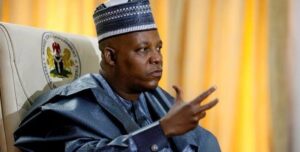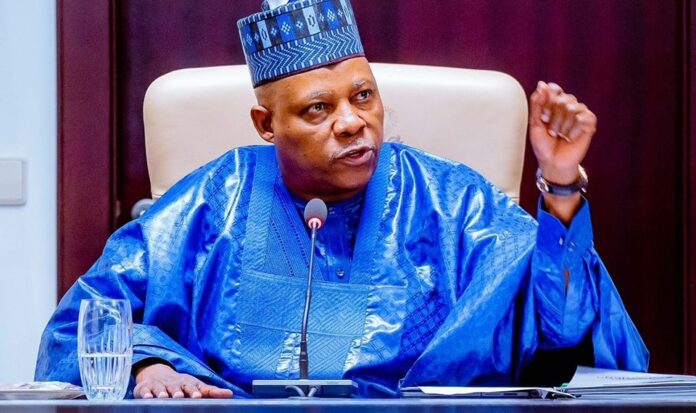Vice President Senator Kashim Shettima has pledged to address the challenges posed by the expanding informal sector and the alarming rates of unemployment in Nigeria, emphasizing the need for a transformative approach to labor participation.
During the launch of the Nasarawa State Human Capital Development Strategy Document and the Gender Transformative Human Capital Development Policy Framework in Lafia, the capital of Nasarawa State, Shettima outlined the administration’s commitment to turning around the adverse conditions affecting the workforce.
He stated that the Human Capital Development (HCD) Programme, under President Bola Ahmed Tinubu’s leadership, aims to provide Nigerians with globally competitive skills, enabling them to thrive in both local and international job markets.
“This is a pivotal moment for Nasarawa State as we embrace the Human Capital Development Programme, a vital initiative for our nation,” Shettima declared. “We have reached a point where we can no longer accept the cycles of stagnation that have impeded our progress. We must confront the challenges of high fertility rates, alarming maternal and child mortality, and the low life expectancy of our vulnerable populations.”
The Vice President expressed concern over the disheartening statistics related to the education system, including low average years of schooling, high pupil-to-teacher ratios, and the significant number of youths who are neither employed nor engaged in education or training. He emphasized that reversing the trends of unemployment, the growing informal sector, and low labor force participation is essential.
“This is the dystopia our Human Capital Development Programme seeks to prevent under the direction of President Bola Ahmed Tinubu,” he explained. “For too long, we have deliberated at the National Economic Council about the ideal nation we aspire to build and how to get there.”

Shettima highlighted that the HCD programme focuses on critical areas such as workforce development, education, and health, which are essential for addressing Nigeria’s human capital challenges. He reiterated that the launch of the strategy document is a testament to the administration’s belief in tailored solutions that reflect the specific needs of each state.
He also noted the unfortunate reality of the ECOWAS region being ranked at the bottom of the global Human Capital Development Index, but he urged that this should not lead to despair. Instead, it serves as a call to action for all nations and sub-national entities to rise to the occasion.
“Every child deserves access to quality education and equitable healthcare, while our workforce must be equipped with the skills needed to succeed in the 21st-century economy,” Shettima asserted.
The Vice President underscored that the government’s commitment goes beyond helping Nigerian youths gain employable skills; it extends to enabling them to compete globally in the international marketplace.
“Our collaboration with the private sector is crucial for achieving these goals. By providing access to resources, expertise, and innovation, we aim to establish human capital development as the foundation for a more prosperous and competitive Nigeria,” he concluded.
Shettima praised Governor Abdullahi Sule for his leadership and vision, noting that the launch of the strategy document and policy framework reflects a forward-thinking approach that promises to make a significant impact.




